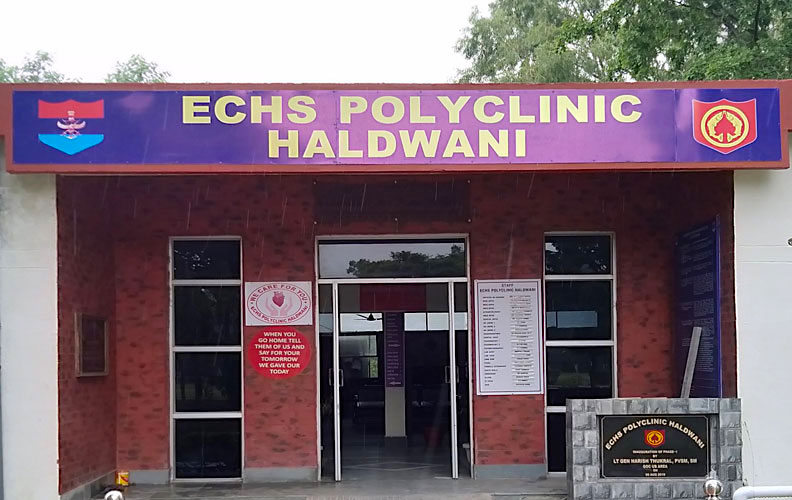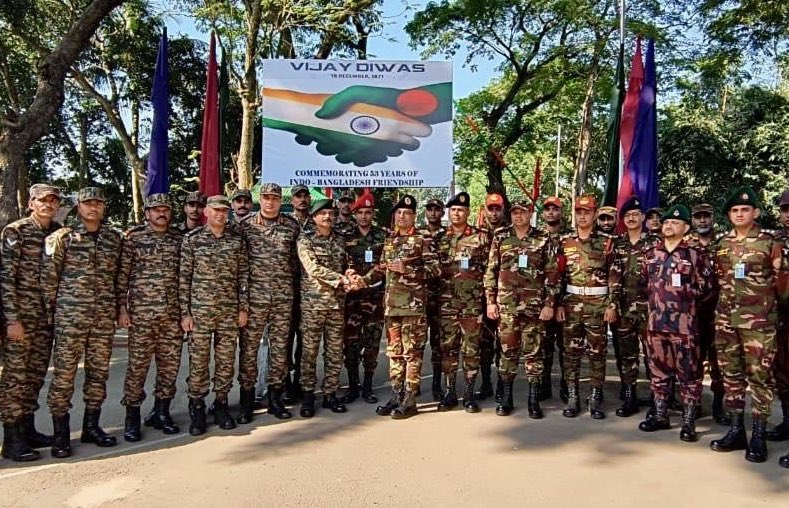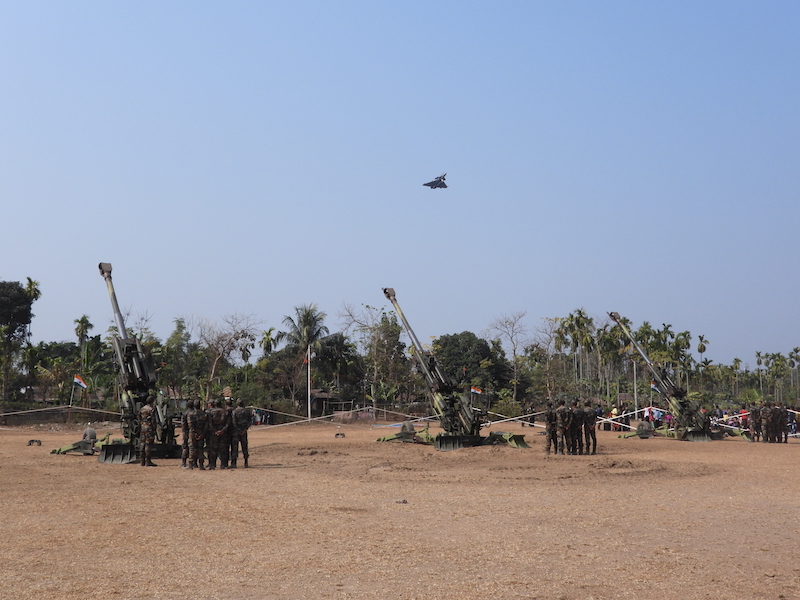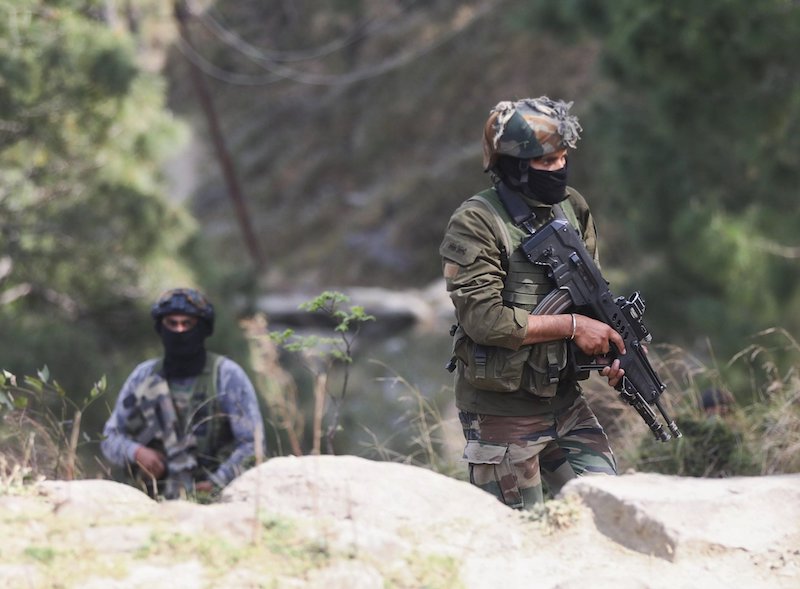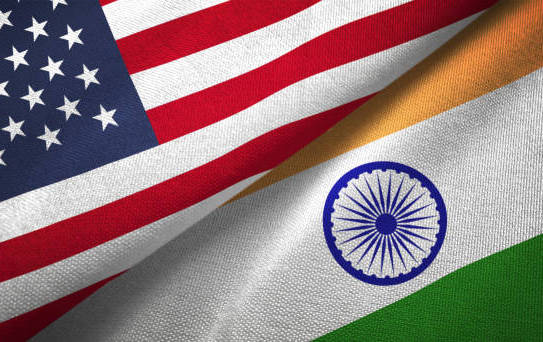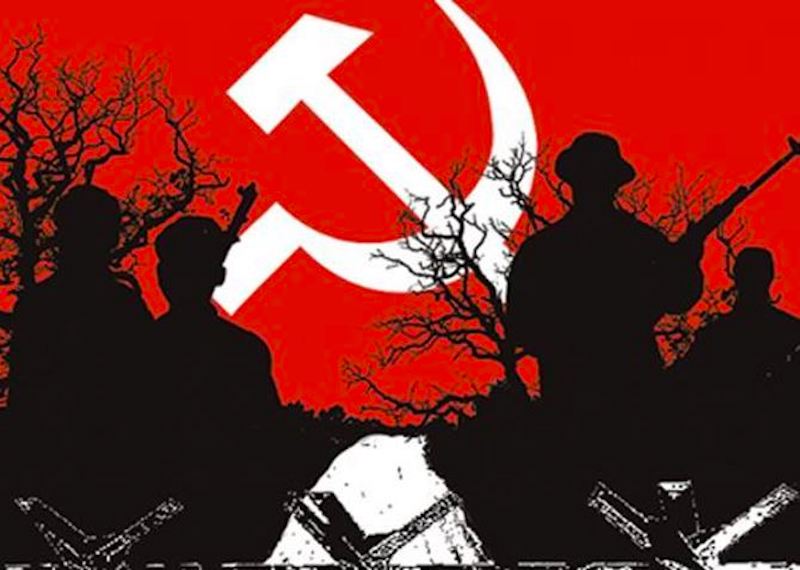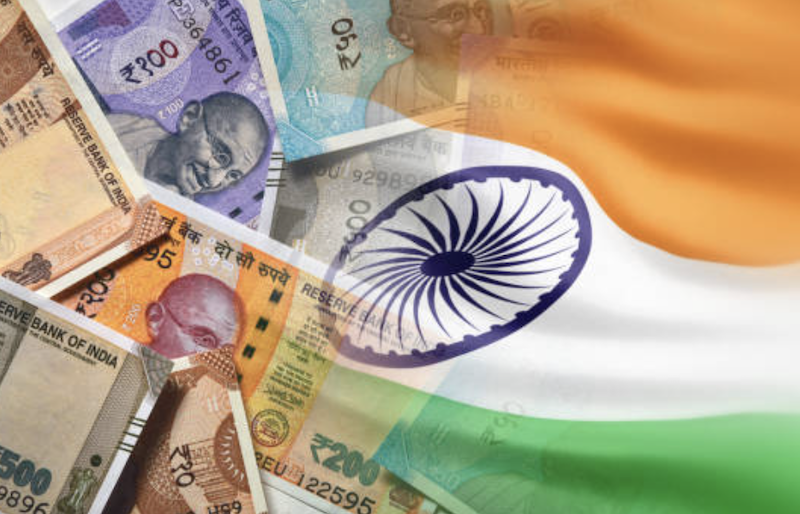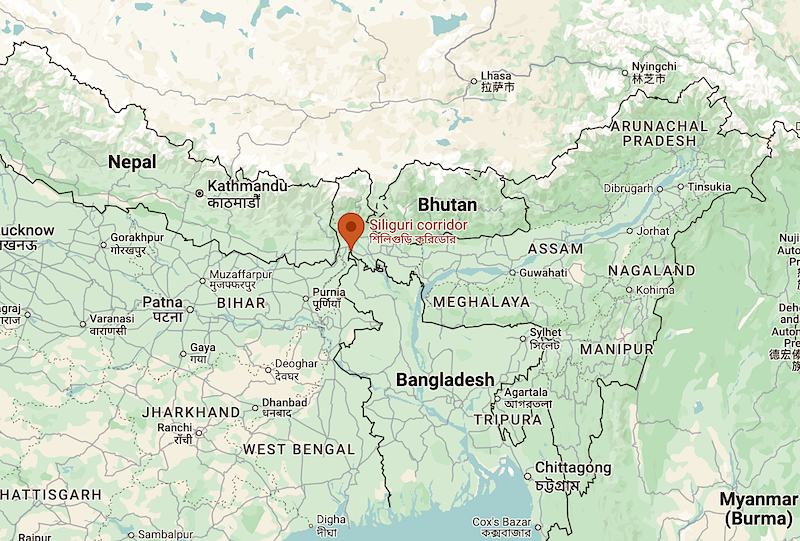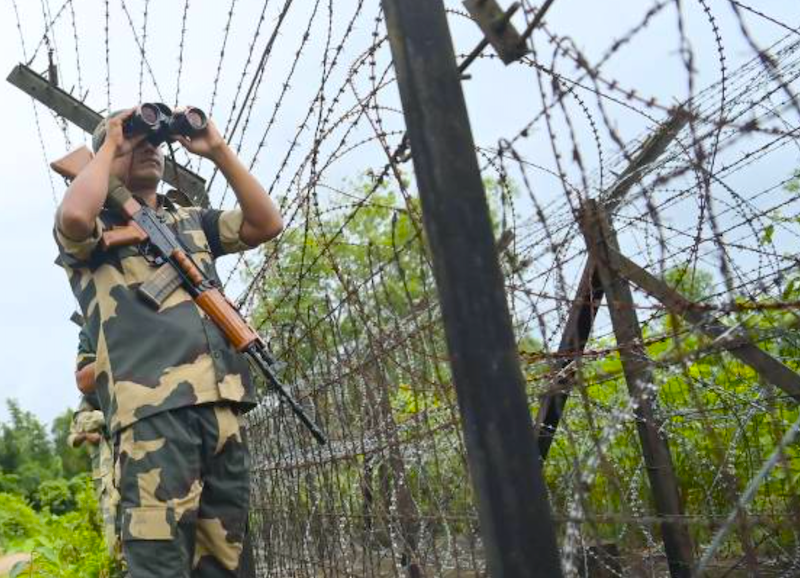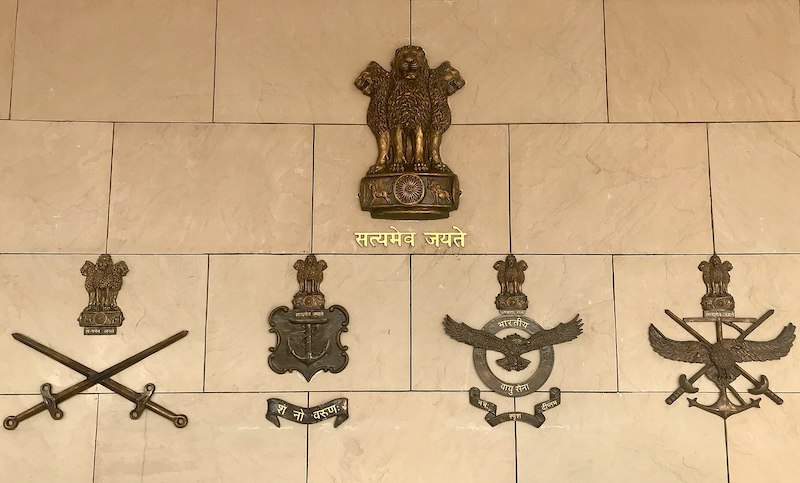 The national emblem on the top with the insignias of (L to R) Indian Army, Indian Navy, Indian Air Force, and the Headquarters of the Integrated Defence Staff. (Photo: Wikimedia Commons/Sanket Oswal)
The national emblem on the top with the insignias of (L to R) Indian Army, Indian Navy, Indian Air Force, and the Headquarters of the Integrated Defence Staff. (Photo: Wikimedia Commons/Sanket Oswal)
Not so long ago, India was perceived as a healthy democracy with a thriving economy, with the world looking up to it for inspiration. The approach towards critical issues, like secularism, communal harmony, and providing good education, healthcare, jobs to the needy, etc, was praiseworthy.
Unfortunately, to some, it appeared as a hindrance towards their own ambitions of grabbing absolute power, which can’t be challenged. Over a period, their efforts started bearing fruits and the country’s downslide started with the crumbling of its various constitutional institutions, one after the other. However, one institute still stood tall – the country’s military.
It was in the crosshairs of the powers that be, and efforts were made to destroy it too. Unfortunately, despite having an unmatched glorious history behind it, the armed forces developed a few chinks in its armour, and their foundation began to shake. The continuous interference by politicians, ably supported by the elite civil servants, popularly known as “babus”, disregarding the serious consequences it may have, is having a telling effect on this great institution.
Read also: Have the armed forces been discriminated against?
To some, this may appear outrageous, but a few instances will prove that this apprehension is neither hearsay nor unfounded.
The country may remember the hype created over the implementation of “one rank, one pension” (OROP). The reality is that OROP is yet to be implemented in its true form. A one-time enhancement in pension is not OROP. The politicians never wanted it to happen and were provided enough help by the babus to hoodwink the soldiers. The stories passed on to the people by the compromised media helped them get away with lies. The deafening silence by the brass, both serving and retired, also helped.
The armed forces’ non-functional financial upgradation (NFFU) and disability pension were eyesores as well. The dispensation granted NFFU to everyone except the armed forces and challenged the non-taxation of disability pension for soldiers. No prizes for guessing who the guiding force behind this was, apart from the studied silence of the brass.
To ensure arbitrary decisions are not questioned, the dispensation has superseded senior soldiers by “followers” or posted regime-leaning soldiers in key positions instead of competent and more deserving soldiers. Not that supersession or such postings have not happened in the past, but never with such blatant political overtones.
Read also: OROP – The wretched veteran’s endless mirage chase
The handpicked top brass and the silence of a large number of otherwise vocal veterans emboldened the dispensation to the extent that it began taking decisions on the requirements of the armed forces without even consulting the military hierarchy, regardless of the consequences. The Rafale deal is one such example wherein the 126 fighters required by the Indian Air Force were reduced to 36 without consultation. It was accepted by the-then IAF chief, who now happens to be in the political party in power.
Extinguishing the Amar Jawan Jyoti is another painful example. The glorious monument was in memory of the fallen soldiers who were killed in action against Pakistan during the 1971 Liberation War of Bangladesh. It was an inspiration for all those who visited it at the heart of New Delhi. It was extinguished under the pretext of eradicating “colonial legacy” and later claimed to have been merged with the flame at the National War Memorial, which was newly constructed at that time.
The stark truth is that it had nothing to do with colonial legacy. It was extinguished to erase the legacy of those who were instrumental in the great victory of 1971.
Read also: Amar Jawan Jyoti – A victim of politics
The story does not stop here. Encouraged by unchallenged decisions, the dispensation went ahead with dictating the type of dress to be worn to do away with colonial legacy. The Indian Navy chief promptly changed the mess dress for its officers and other ranks. One wonders whether the mess dress was the only reminder of colonial legacy, and not the customs that were followed in the mess.
One more nail in the coffin was the introduction of the Agnipath recruitment scheme in the armed forces, throwing national security to the wind. This is perhaps the most destructive action taken by the dispensation. One wonders why, for every new policy, the testbed chosen is the armed forces. Why could this not be introduced in the civil services or the police forces?
Read also: Agnipath scheme – Government must come clean on forcing new policy
The answer is obvious: total submission by the brass, for reasons best known to them.
After Independence, the armed forces have been placed under a democratically elected body for control. Please note the word “control” and not “administration” or “govern”. The armed forces have a proper chain of command for administration. Now, even this is interfered and tinkered with by the babu-supported politicians and subservient brass.
Numerous instances can be cited to prove this undesirable nexus, which has a demoralizing effect on the soldiers. How long will the so-called colonial legacy be cited as an excuse? Does it exist only in the armed forces? Politicians are well aware of the bygone era when military leaders, like Sam Manekshaw, could stand up to the dispensation and speak their mind. The armed forces must learn and understand the difference between what is good for them and bad for them.
Contesting a controversy is not indiscipline. The truth is bitter, but sometimes a bitter pill cures many ills.
Read also: Today, the once-proud Indian Army seems like a crumbling edifice
Disclaimer: The views expressed in the article are the author’s own and don’t necessarily reflect the views of India Sentinels.
Follow us on social media for quick updates, new photos, videos, and more.
Twitter: https://twitter.com/indiasentinels
Facebook: https://facebook.com/indiasentinels
Instagram: https://instagram.com/indiasentinels
YouTube: https://youtube.com/indiasentinels
© India Sentinels 2024-25

